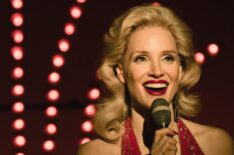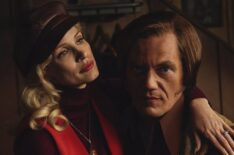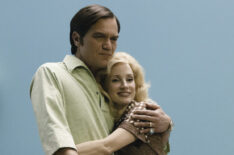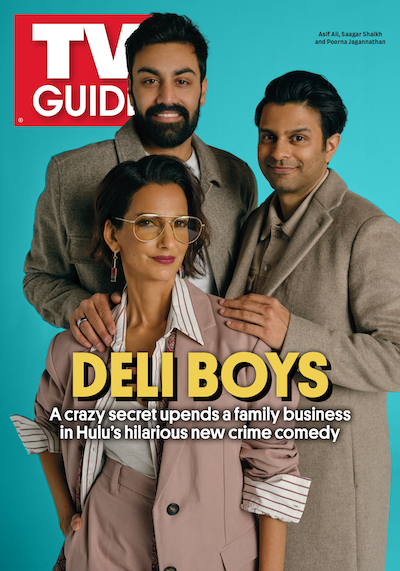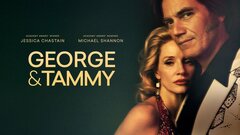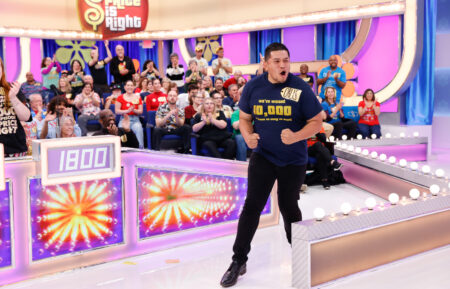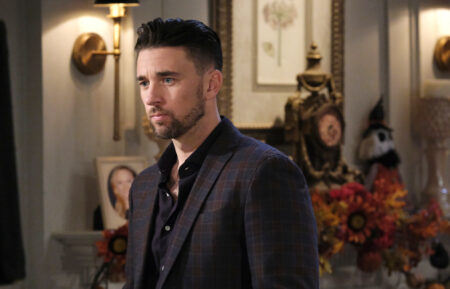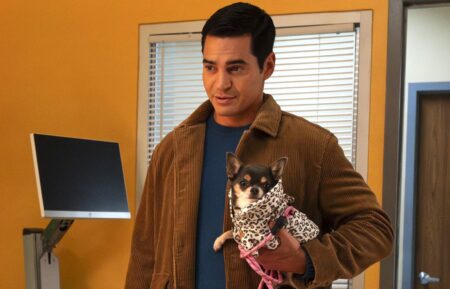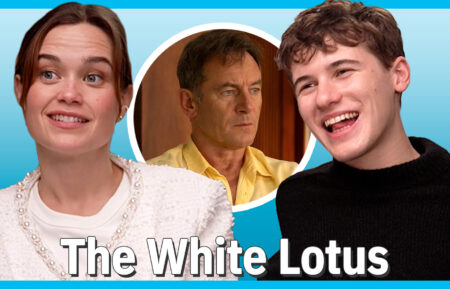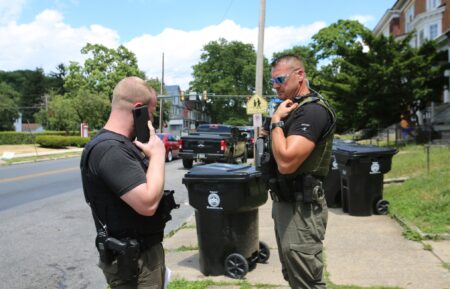‘George & Tammy’: Michael Shannon on Why He Had to Sing Live & Demystifying George Jones
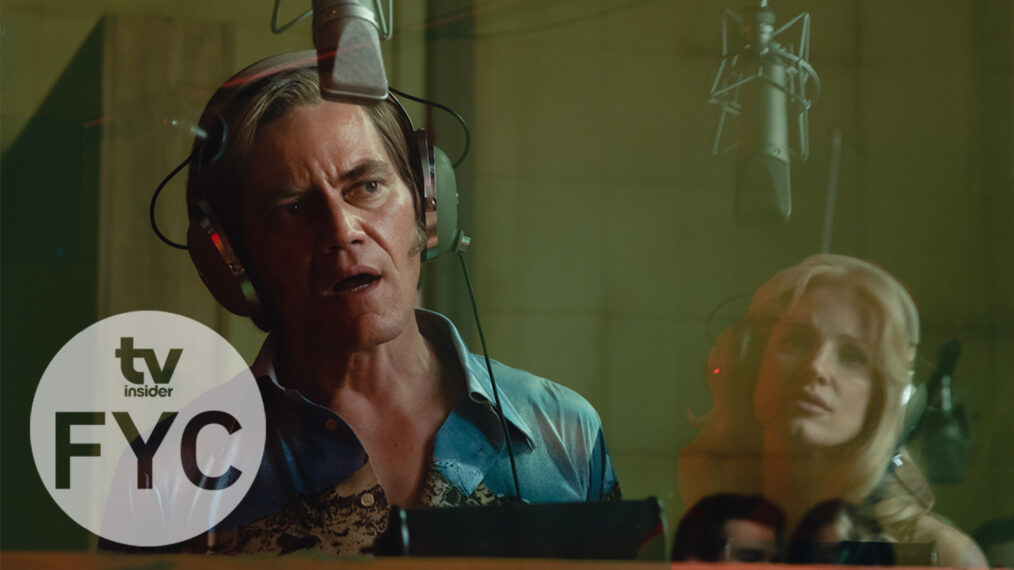
Q&A
George Jones and Tammy Wynette were transformed from country music legends into everyday people in the very capable hands of Michael Shannon and Jessica Chastain. George & Tammy, Showtime’s equal parts glittering and dark limited series, which debuted last December, put the spotlight back on the figures often called the “Rolls-Royce” and “First Lady” of country music. It highlighted each of their struggles with addiction as they created some of the genre’s greatest songs.
As Shannon describes to TV Insider, he was tasked with demystifying George’s “macho, ass-kicking, country western, ‘I don’t give a damn’ persona” attached to his alcoholism. For Chastain, Tammy’s drug addiction stemmed from the daily pain she endured from a botched hysterectomy. But through all the trauma and new marriages, the series made it clear that George and Tammy were each other’s greatest loves. Bringing that undeniable connection to the screen was top priority for Shannon and Chastain.
The show is now available to stream on Paramount+. Here, Shannon reflects on the importance of singing live in the series and the simple but poignant lesson George & Tammy can teach audiences.
What helped you first unlock George as a character?
Michael Shannon: I really started at square one because I did not know barely anything about George Jones. Fortunately, he has an autobiography, so that’s always a sound place to start although people would tell me you may not be able to trust every word of it, which is frustrating. I was like well, you have to start somewhere. You read that, and you say OK, some of this is true. And then there’s other things you can read, like I read Tammy’s book, I watched a lot of interviews, I read Georgette’s book, and then I watched the Ken Burns country music series. You just do a deep dive basically. It’s kind of like you’re studying for an exam or something.
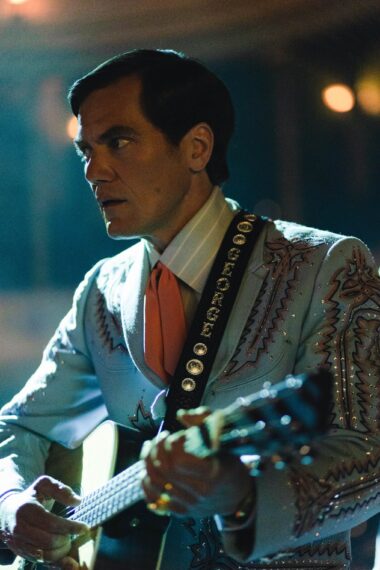
Dana Hawley/Courtesy of SHOWTIME
Georgette Jones [George and Tammy’s daughter] was a big part of the series, right?
Yeah, she’s actually in it. She played a singer. The very last scene where we’re on the bus and we all start singing “Lost Highway,” she sings a line of that by herself. She’s sitting towards the front of the bus where the driver is.
You and Jessica sang live during the filming of these performance scenes. From what I understand, there were some days where you were singing for the whole stretch of the day. Did you and Jessica set out to sing live from the beginning of this? Or was that something that developed naturally as time went on?
I came into this project significantly later than she did. I was a last-minute addition. From the moment I showed up, my two cents was we have to sing live. That’s the story of these people. If we just lip-synched the whole thing, we aren’t going to get in the situation that these people were in. Again, like I said I can’t know with absolute certainty, but my opinion is that that really was the crux of their relationship. The birth of the intimacy and love that they had for one another was singing together. I thought it was really important that the show feel genuine and authentic, even if that meant perhaps sacrificing some of the slickness of it, because it’s a show about peoples’ hearts, you know? And I think in order for that to be effective, it has to be authentic.
I do love the live singing aspect of this, especially with George and Tammy’s lyrics. They’re such intimate and human songs with very to-the-point lyrics. They’re universally understandable. I feel like one of the key connective tissues in this series is the love that exudes between them when they’re singing together, no matter where they are in their lives.
Exactly.
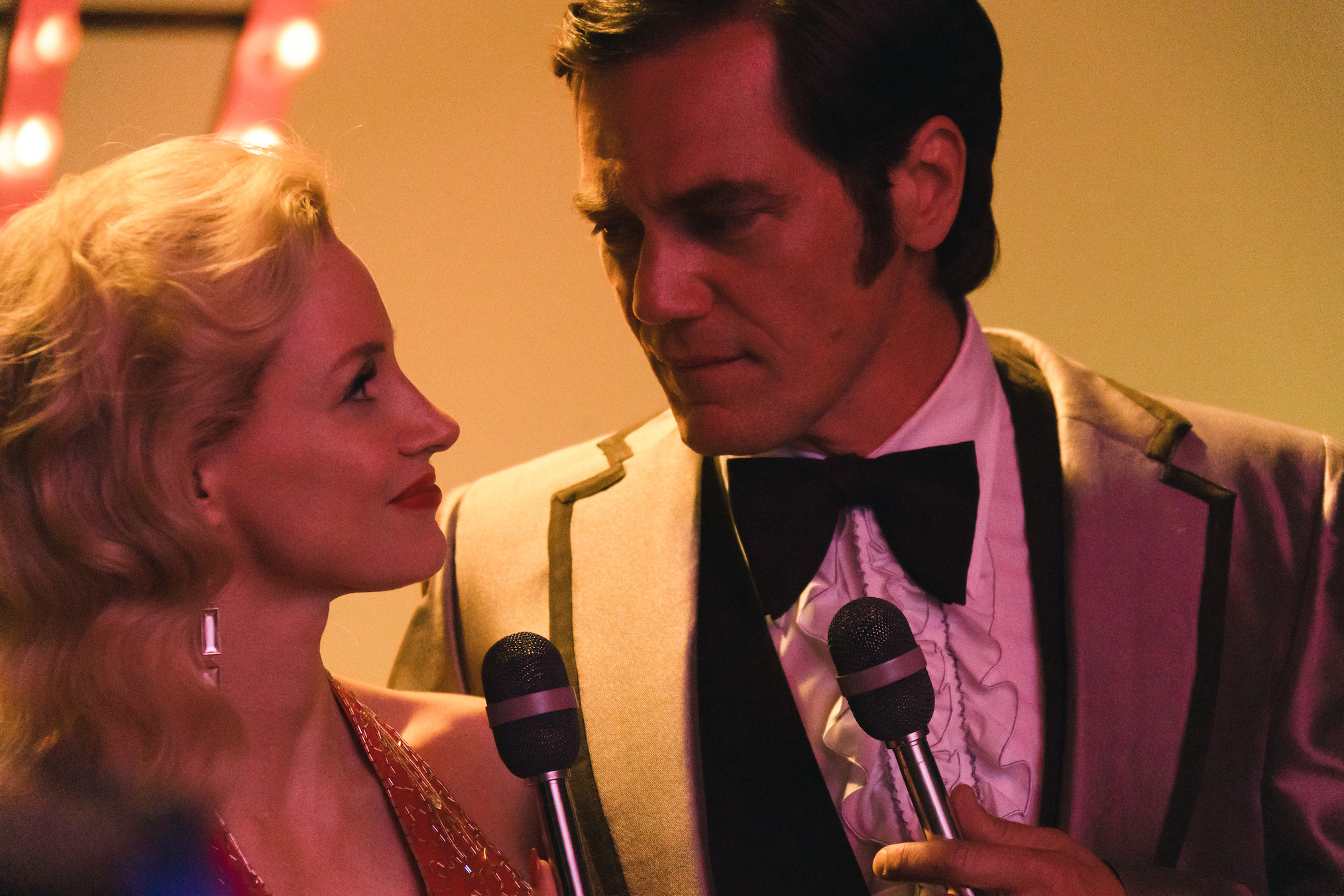
Dana Hawley/Courtesy of SHOWTIME
You and Jessica made that look really easy. How did you two create that closeness?
Well, I think a lot of that was born out of the experience we had learning to sing together. We basically were in this singing bootcamp for a long time before we even started shooting. We’d go in five days a week, and we’d both have our solo instruction with our teacher Ron Browning, and then we’d work on the duets. I think we were both in such a similar place, and we were both attempting to do something very similar, so we formed a bond through that process of starting from a place of fear or doubt and eventually watching each other figure things out and becoming stronger and supporting each other. There’s something about harmonizing with another person that is just a very primal connection, particularly with songs like this.
Was the musical element one of the more challenging parts of this role for you?
Yeah, I’d say so for both of us because I was following in the footsteps of the man who’s widely considered one of the greatest country singers of all time, if not the greatest. That was a lot. I listened to the music religiously, and at a certain point you kind of have to make a decision about, “am I going to try to sound exactly like this, or am I going to sound like my version of what I think it is?” I think once we got through the first couple of numbers — we never got arrogant about it but we got to the point where we accepted the situation we were in and started to feel more comfortable with it.
So ultimately you chose to make it your version?
Yeah. I mean it’s kind of the only thing that makes sense, you know? Because the way people sound, a lot if that is based on your physical being, the way your face is structured, your bone structure. My head is completely different than George Jones’ head, and the way that reverberates inside you, there’s just certain factors or elements that are going to make it difficult to make an exact match.
And it’s more important to get the essence of this person. The job isn’t to sound exactly like this person, it’s to exude what they actually were like.
Yeah, I think so.
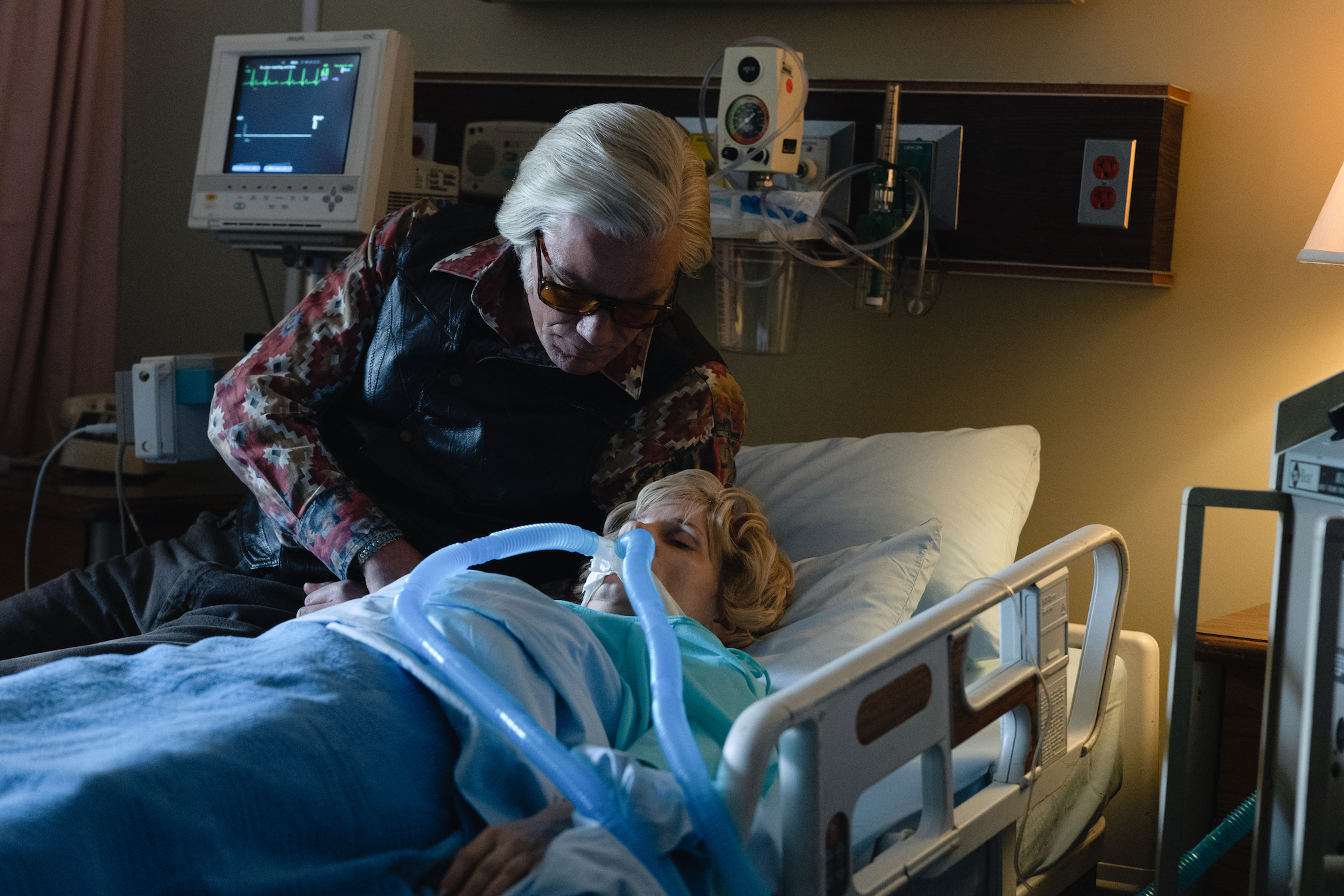
Dana Hawley/Courtesy of SHOWTIME
This season spans six episodes and tracks multiple decades of these peoples’ lives. George develops this quacking tick and “the old man” personality. What helps you understand how he got to that place?
Oh dear. A lot of it was just putting myself in his shoes and imagining what it would be like to be him, and that’s the hard thing to put into words. You look at your own life and things you’ve been through and try and match it up to his experiences. I just imagine by that point he was in so much pain. He’d been through so much and lost so much, and it feels like almost a kind of Tourette’s that he developed as some form of PTSD from the insanity of his own existence. He was in so much pain, this guy. When I watched the show, I had a hard time honestly because it brought back all that trauma. A lot of people, they look at country music stars or someone like George and they’re turned on by what seems like the macho, ass-kicking, country western, “I don’t give a damn” persona, but to me it was something much more delicate than that.
I feel that this series, outside of showing the success and talent and the behind the scenes of how those songs were created by these legendary country singers, it’s really about the real pain both of these people were going through, the addictions they were both struggling with, and how neither of them really got help for those things.
I still don’t know how the hell he did it after all the research I’ve done. I don’t know how he righted the plane, but he did. And he says it was all Nancy [Sepulvado, George’s wife after Tammy], that Nancy saved his life and helped him straighten out, but I feel like there’s gotta be something more to it because people can’t really do that for you. Nobody can really save you like that; you have to make that decision for yourself. Maybe when he saw how Tammy wound up it just scared him so much that… But see that’s the thing, he’d already sobered up by then. I don’t know. It’s funny because I would read about it and he’d say, “Yeah, I quit drinkin. I pretty much quit drinking. Every now and then I’ll have a drink.” That’s not how it works. [Laughs] But I don’t know, he seemed very at peace towards the end of his life from what I could tell.
When these ticks develop, it happens around Episode 4 or 5 out of the six. Only having a couple of episodes to get to that point, how did you pace yourself with your performance so the development of that mental state seemed natural?
Wow. Well, I have to say, I feel like I should really give most of the credit for that to Abe Sylvia, the writer, because he really had the task of orchestrating the rise and fall of these people in a very contained environment. He had more time than he would have if it were a movie, and I think he was grateful for that. But still, it was a lot to cram into six episodes, that’s for sure. But I try not to get too anxious about that. I feel like if it makes sense to me and I can do it, then they’ll figure out how to string it together. For me, you’ve just got to show up in whatever scene you have that day, and whatever point in the show it happens to be, you just have to give yourself over to it 100 percent and not edit yourself. Just be as authentic as you can manage to be.
The series humanizes these country legends, but what do you think is the importance of this story on a grander scale like what message do you think can be conveyed by using George and Tammy as a lens?
That’s a tricky one. I adore George and Tammy both in equal manner. I think they’re the most beautiful artists and people, but neither one of them I would say are to be emulated necessarily — although they were both very strong people, despite their best effort to get in their own way. Although Tammy, she was a fighter. Even when she was down and on all that medicine, she could still pull things together. She could still show up and do the show. She could still take care of her kids, make dinner, all the rest of it. And she was in so much pain. I don’t know if it’s instructive, this show. I think it’s more just an opportunity to spend some time with two incredibly beautiful, complicated, tormented artists and to see how indestructible the connection they had was.
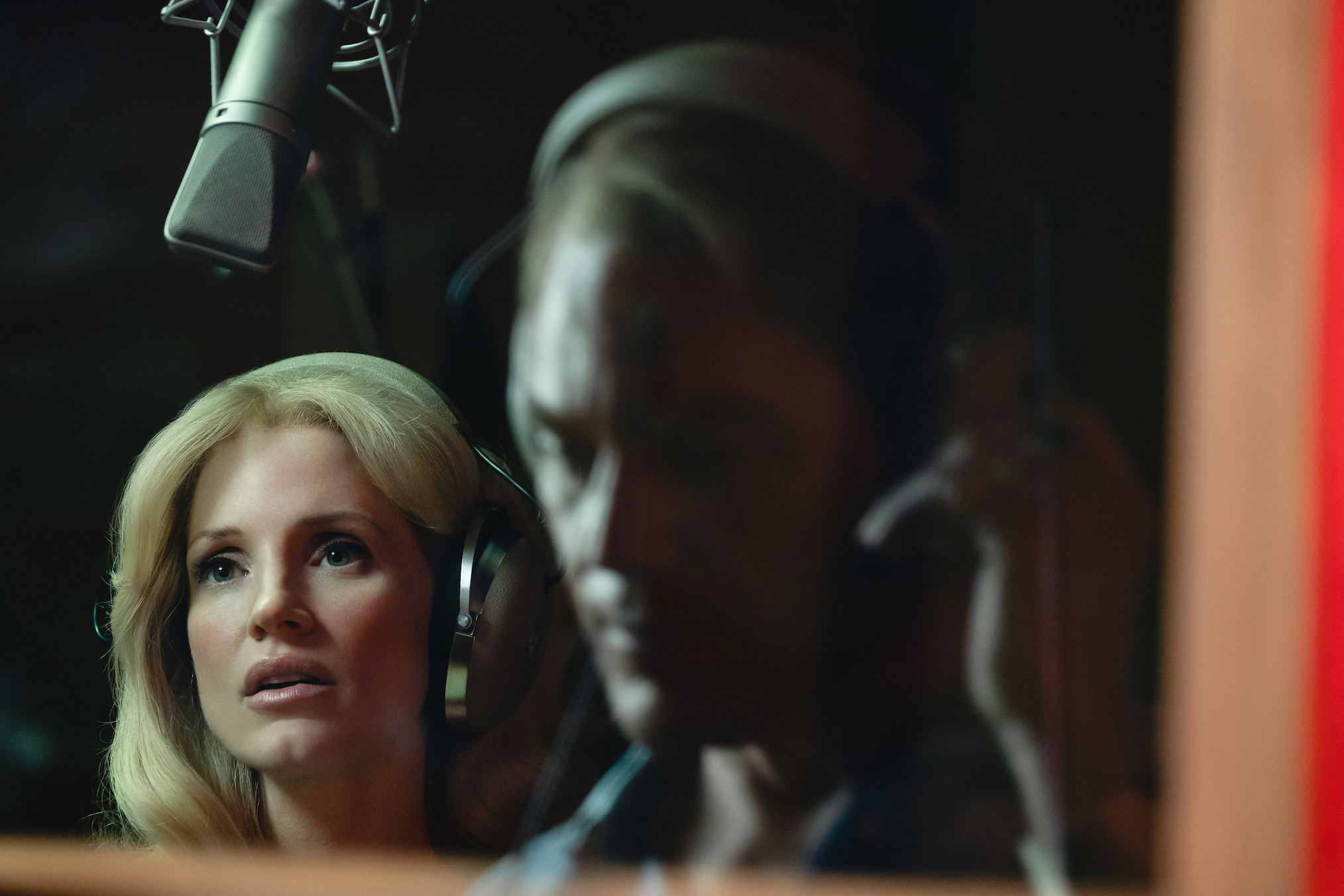
Dana Hawley/Courtesy of SHOWTIME
The connection between you two in this show is really what carried it all for me. I was finding myself excited to see you both back in the recording booth scenes performing together. It just felt so good to see that connection because it really was so clear.
Maybe that’s the moral of the story. It’s about what a beautiful thing true love can be.
And maybe understanding their songs, like the real love behind what informed all those lyrics.
Yeah, it’s funny. A lot of those songs, they didn’t write. One of my favorite songs is the one that Tammy wrote, the “Two Story House” song.
I love that one. That was the first time I’d heard the song, so it was moving to see it in that sequence.
I love that sequence in the show, like what you were talking about earlier, when I’m really rock-bottom, sleeping in that club, and she comes and gets me and says, “I wrote a song,” and then we go sing it. It’s very moving.
George & Tammy, Available Now, Paramount+ With Showtime
From TV Guide Magazine
Crime, Comedy & Convenience Stores: Unwrapping Hulu's 'Deli Boys' With the Cast
Cupcakes, corndogs…and cocaine?! Two brothers find themselves in a hilarious pickle when they inherit an unseemly bodega biz in Hulu’s new comedy Deli Boys. Find out how The Sopranos and Real Housewives of Orange County influenced the cast. Read the story now on TV Insider.

